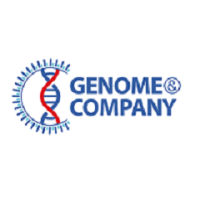Request Demo
Last update 08 May 2025
BCAT2
Last update 08 May 2025
Basic Info
Synonyms BCAM, BCAT(m), BCAT2 + [8] |
Related
4
Drugs associated with BCAT2Target |
Mechanism BCAT2 inhibitors |
Active Org. |
Originator Org. |
Active Indication |
Inactive Indication- |
Drug Highest PhasePreclinical |
First Approval Ctry. / Loc.- |
First Approval Date20 Jan 1800 |
Target |
Mechanism BCAT2 inhibitors |
Active Org. |
Originator Org. |
Active Indication |
Inactive Indication- |
Drug Highest PhasePreclinical |
First Approval Ctry. / Loc.- |
First Approval Date20 Jan 1800 |
100 Clinical Results associated with BCAT2
Login to view more data
100 Translational Medicine associated with BCAT2
Login to view more data
0 Patents (Medical) associated with BCAT2
Login to view more data
282
Literatures (Medical) associated with BCAT201 Jun 2025·Molecular Genetics and Metabolism Reports
Branched-chain amino acid transferase type 2 (BCAT2) deficiency: Report of an eighth case and literature review
Article
Author: Keren, Boris ; Imbard, Apolline ; Benoist, Jean-François ; Mondésert, Etienne ; Pontoizeau, Clément ; Mansat, Charlotte ; Barcia, Guilia ; Schiff, Manuel ; Mannes, Inès ; Bouchereau, Juliette
03 Mar 2025·Molecular Cancer Research
Gut Microbiota–Mediated hsa_circ_0126925 Targets BCAA Metabolic Enzyme BCAT2 to Exacerbate Colorectal Cancer Progression
Article
Author: Tai, Qingliang ; Sun, Liang ; Shen, Danyang ; Zhong, Runze ; Shi, Bo ; Lu, Yang ; Zhou, Diyuan ; Zhou, Aina ; Yao, Huihui ; Dong, Qiuchen ; Shi, Xinyu ; Mi, Xiuwei ; Li, Mengyu ; Yao, Yizhou ; Yang, Xiaodong ; Xu, Jiancheng ; Chen, Guoliang ; He, Songbing
10 Feb 2025·Theranostics
Spatial Metabolomics and Transcriptomics Reveal Metabolic Reprogramming and Cellular Interactions in Nasopharyngeal Carcinoma with High PD-1 Expression and Therapeutic Response
Article
Author: Ji, Lili ; Wang, Dujuan ; Zhuo, Guangzheng ; Chen, Zhe ; Zhang, Qian ; Wan, Yuhang ; Liu, Guohong ; Pan, Yunbao ; Wang, Liping
Analysis
Perform a panoramic analysis of this field.
login
or

AI Agents Built for Biopharma Breakthroughs
Accelerate discovery. Empower decisions. Transform outcomes.
Get started for free today!
Accelerate Strategic R&D decision making with Synapse, PatSnap’s AI-powered Connected Innovation Intelligence Platform Built for Life Sciences Professionals.
Start your data trial now!
Synapse data is also accessible to external entities via APIs or data packages. Empower better decisions with the latest in pharmaceutical intelligence.
Bio
Bio Sequences Search & Analysis
Sign up for free
Chemical
Chemical Structures Search & Analysis
Sign up for free



